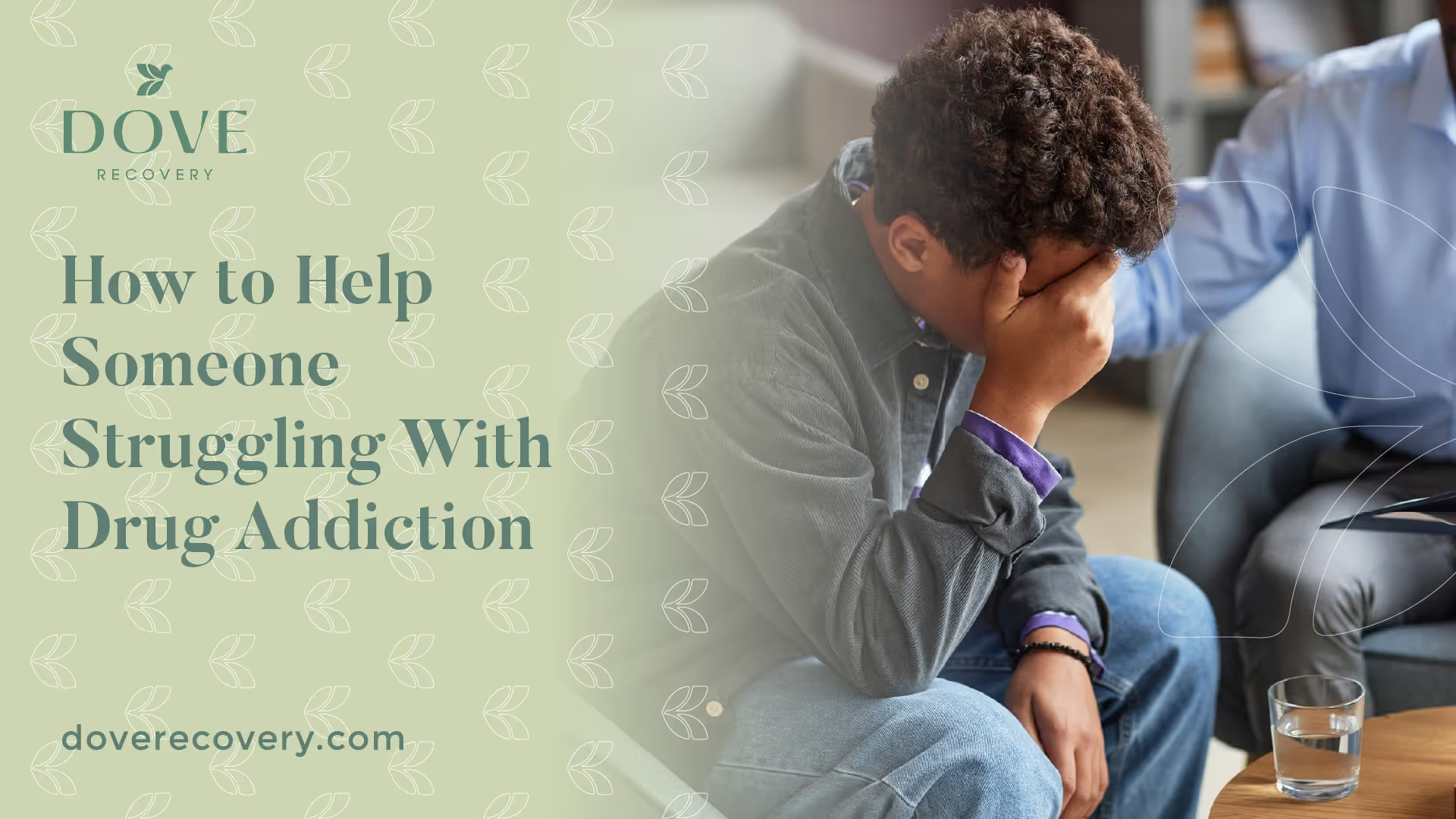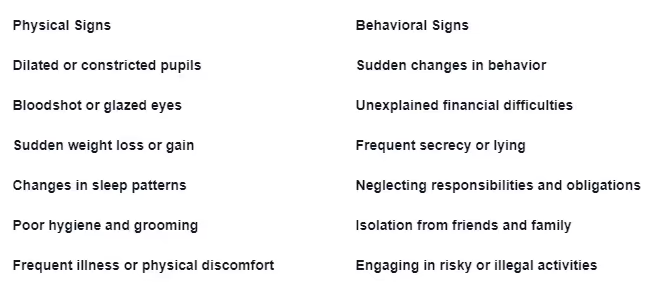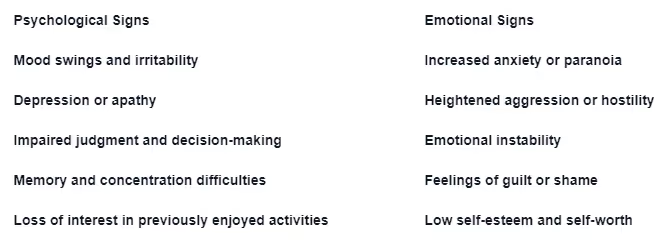How to Help Someone Struggling With Drug Addiction

Understanding Drug Addiction
To effectively help someone struggling with drug addiction, it is crucial to have a solid understanding of this complex issue. This section will delve into what drug addiction is and the effects it can have on individuals.

What is Drug Addiction?
Drug addiction refers to a chronic, relapsing disorder characterized by compulsive drug-seeking and drug use, despite negative consequences. It is a brain disorder that affects the way a person's brain and body function, leading to intense cravings and a loss of control over drug consumption.
Drug addiction is often a result of repeated drug use that alters the brain's reward system, making it difficult for individuals to resist the urge to use drugs. Over time, the brain becomes dependent on the drug to function properly, leading to tolerance, withdrawal symptoms, and an overwhelming desire to continue drug use.
It's important to understand that addiction is not a choice or a moral failing. It is a complex disease that requires understanding and support to overcome. By approaching addiction with empathy and compassion, you can make a significant impact in helping someone recover.
The Effects of Drug Addiction
Drug addiction can have profound effects on an individual's physical, mental, and emotional well-being. The specific effects may vary depending on the type of drug used, the duration of use, and individual factors. Some common effects of drug addiction include:
- Physical health issues: Prolonged drug use can lead to a range of physical health problems, such as cardiovascular disease, respiratory issues, liver damage, and compromised immune function.
- Mental health disorders: Drug addiction is often accompanied by mental health disorders, such as anxiety, depression, and psychosis. Substance abuse can exacerbate existing mental health conditions or contribute to the development of new ones.
- Social and relationship problems: Addiction can strain relationships with family, friends, and colleagues. It may lead to social isolation, financial difficulties, legal issues, and a breakdown of trust.
- Negative impact on daily life: Drug addiction can disrupt an individual's ability to fulfill personal and professional responsibilities. It may lead to absenteeism, poor academic performance, loss of employment, and a decline in overall quality of life.
Understanding the effects of drug addiction is crucial in recognizing the urgency and necessity of helping someone overcome their struggle. By being aware of the physical, mental, and social consequences, you can provide the support and resources needed for a successful recovery journey.
Recognizing the Signs of Drug Addiction
When it comes to helping someone struggling with drug addiction, one of the first steps is to recognize the signs. Drug addiction can manifest in various ways, affecting both the individual's physical and behavioral aspects, as well as their psychological and emotional well-being.
Physical and Behavioral Signs
Identifying the physical and behavioral signs of drug addiction can be crucial in understanding if someone is struggling with substance abuse. These signs may include:

It's important to note that these signs may vary depending on the specific drug being abused.
Psychological and Emotional Signs
In addition to physical and behavioral changes, drug addiction can also have a profound impact on an individual's psychological and emotional well-being. Some common psychological and emotional signs of drug addiction include:

Recognizing these signs can help you better understand the emotional toll that drug addiction can have on an individual. It's important to approach the situation with empathy and compassion, as addiction is a complex issue that requires support and understanding.
If you suspect that someone you care about is struggling with drug addiction, it's crucial to approach the situation with care and sensitivity. Understanding and recognizing the signs is the first step towards helping them on their path to recovery. Once you've identified the signs, you can move forward in providing the necessary support and guidance. Remember, seeking professional help, such as drug addiction counseling or support groups, can be instrumental in assisting both the individual and their loved ones throughout the recovery process.
Approaching a Loved One
If you suspect that a loved one is struggling with drug addiction, it's important to approach the situation with care, compassion, and a well-prepared plan. In this section, we will discuss two crucial steps in helping a drug addict: preparing yourself and initiating the conversation.
Preparing Yourself
Before reaching out to a loved one about their drug addiction, it's essential to prepare yourself emotionally and mentally. Dealing with addiction can be challenging, and it's important to educate yourself about the topic. This knowledge will help you better understand what your loved one may be going through and allow you to approach the situation with empathy.
It's also crucial to address your own feelings and concerns. Seek support from friends, family, or professionals who can provide guidance and advice. Participating in drug addiction support groups or seeking counseling for yourself can be immensely helpful.
Remember, it's important to approach the conversation with empathy, understanding that addiction is a complex issue requiring professional help. By preparing yourself emotionally and mentally, you can better support your loved one through this challenging journey.
Initiating the Conversation
Initiating a conversation about drug addiction can be difficult, but it is a crucial step in helping your loved one seek the necessary support and treatment. Here are some key points to consider:
- Choose an appropriate time and place: Find a calm and private setting where both of you can feel comfortable and have an uninterrupted conversation. Avoid confrontational or emotionally charged environments.
- Use empathetic and non-judgmental language: Approach the conversation with compassion and understanding. Use "I" statements to express your concerns without sounding accusatory. For example, say, "I have noticed changes in your behavior that worry me" instead of "You are ruining your life."
- Express your observations and concerns: Share specific instances or behaviors that have raised concerns. Be prepared to provide examples, but avoid becoming confrontational or argumentative. Let your loved one know that you are speaking from a place of care and concern.
- Listen actively: Give your loved one an opportunity to express themselves without interruption. Show empathy and validate their feelings. Avoid passing judgment or making assumptions.
- Offer support and resources: Let your loved one know that they are not alone and that there is help available. Provide information about treatment options, such as counseling or rehabilitation programs. You can refer to our article on drug addiction counseling for more information. Encourage them to seek professional help and assure them that you will be there to support them throughout their recovery journey.
Remember, approaching a loved one about their addiction requires patience, understanding, and ongoing support. Be prepared for the possibility that they may not be ready to seek help immediately. It's essential to continue offering your support, providing resources, and encouraging them to seek the assistance they need. In some cases, professional intervention may be necessary. Learn more about interventions in our article on interventions for drug addiction.
By preparing yourself and initiating the conversation with empathy and understanding, you can take the first steps toward helping your loved one overcome their drug addiction. Stay patient, be persistent, and offer your unwavering support throughout their journey to recovery.
Supporting a Drug Addict
When it comes to helping someone struggling with drug addiction, there are several ways you can provide support and encouragement. Here are three key areas to focus on: encouraging treatment, providing emotional support, and setting boundaries.
Encouraging Treatment
Encouraging a drug addict to seek treatment is a crucial step in their recovery journey. Reinforce the importance of professional help and the benefits of seeking treatment from experienced professionals. Offer to assist them in researching and finding suitable treatment options that align with their needs, whether it's inpatient rehab, outpatient programs, or counseling services. Highlight the positive outcomes of getting treatment, such as improved physical and mental health, rebuilding relationships, and reclaiming control over their life. For more information on treatment options, check out our article on treatment options.
Providing Emotional Support
Emotional support plays a vital role in helping a drug addict navigate the challenging path to recovery. Be there for them, lending a listening ear without judgment. Show empathy and understanding, acknowledging their struggles and reinforcing your belief in their ability to overcome addiction. Encourage open and honest communication, allowing them to express their thoughts and emotions. Offer to accompany them to therapy sessions or support group meetings, providing a comforting presence and reinforcing their commitment to recovery.
Setting Boundaries
While providing support, it's essential to establish and maintain healthy boundaries. Set clear expectations and communicate your concerns regarding their drug use. Make it known that you will not enable their addiction or engage in behaviors that may perpetuate their substance abuse. By setting boundaries, you are reinforcing the importance of their recovery and encouraging them to take responsibility for their actions. Seek support for yourself as well, as supporting a drug addict can be emotionally taxing.
Remember, supporting a drug addict is a delicate process that requires patience, understanding, and perseverance. By encouraging treatment, providing emotional support, and setting boundaries, you can play a significant role in their journey towards recovery.
Resources and Professional Help
When it comes to helping a loved one overcome drug addiction, it's important to understand that professional help and resources play a vital role in the recovery process. This section will explore various treatment options, the benefits of support groups and counseling, and the importance of encouraging professional intervention.
Treatment Options
Seeking professional treatment is often a crucial step in helping a drug addict on their path to recovery. There are various treatment options available, including:
Inpatient Rehabilitation - Inpatient rehab programs provide a structured environment where individuals receive intensive treatment, including therapy, counseling, and medical support. This option is particularly beneficial for individuals with severe addiction or those who require a higher level of care.
Outpatient Rehabilitation - Outpatient rehab programs offer flexibility for individuals who have responsibilities or obligations they cannot neglect. These programs typically involve regular therapy sessions and counseling while allowing individuals to continue with their daily lives. It's important to note that outpatient programs may not be suitable for everyone, as they require a strong commitment to recovery.
Medication-Assisted Treatment - Medication-assisted treatment combines medications, such as methadone or buprenorphine, with counseling and therapy. This approach is often used to treat opioid addiction and helps to reduce cravings and withdrawal symptoms. It's essential for individuals considering this option to consult with healthcare professionals to determine the most appropriate course of treatment.
Remember, the choice of treatment will depend on the individual's specific needs and circumstances. Consulting with addiction specialists or medical professionals can help determine the most suitable treatment option for the person struggling with addiction.
Support Groups and Counseling
Support groups and counseling can provide invaluable assistance for both the individuals struggling with addiction and their families. These resources offer a safe and non-judgmental space to share experiences, gain support, and learn coping strategies. Some common types of support groups and counseling options include:
- 12-Step Programs: Programs such as Alcoholics Anonymous (AA) and Narcotics Anonymous (NA) follow a structured approach, providing guidance and support through a series of steps.
- Group Therapy: Group therapy sessions allow individuals to connect with others facing similar challenges, fostering a sense of community and understanding.
- Individual Counseling: One-on-one counseling sessions provide personalized attention, allowing individuals to address their specific needs and work through personal issues.
Encouraging Professional Intervention
In some cases, professional intervention may be necessary to help a drug addict recognize the severity of their addiction and seek treatment. Professional interventions involve a carefully planned and structured conversation led by an intervention specialist. These specialists guide family and friends in expressing their concerns and providing the individual with the opportunity to accept help.
During an intervention, it's crucial to approach the situation with empathy and understanding. The goal is to encourage the individual to seek treatment and understand that their loved ones are there to support them on their journey to recovery. Professional interventionists have the knowledge and experience to navigate these sensitive conversations effectively.
If professional intervention is deemed necessary, reach out to intervention specialists or addiction treatment centers to explore available options. Our article on interventions for drug addiction can provide additional guidance on this topic.
By utilizing the various resources and professional help available, you can provide the necessary support and guidance to help a drug addict overcome addiction. Remember, recovery is a challenging but achievable journey, and having a strong support system and professional assistance is instrumental in the process.
Conclusion
If you or someone you know is struggling with drug addiction, it's essential to seek professional help and support. Drug addiction is a complex issue that requires ongoing treatment and management. Remember, recovery is a journey, and it's essential to approach it with patience, perseverance, and a willingness to seek help when needed. By utilizing the various resources and support available, you can take the first steps towards overcoming addiction and reclaiming control over your life.
Sources:
- https://www.helpguide.org/articles/addictions/helping-someone-with-drug-addiction.htm
- https://www.healthdirect.gov.au/help-someone-who-is-misusing-drugs-or-alcohol
- https://www.mayoclinic.org/diseases-conditions/mental-illness/in-depth/intervention/art-20047451
- https://www.oasisrecovery.com/post/how-to-help-someone-with-drug-addiction
